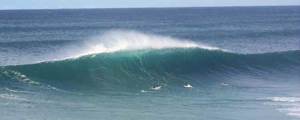the south-west pacific, 1945

Japanese bones.
Some islands had been deserted completely for over two years and only wild dogs were left to greet the crew when they came ashore. These dogs patrolled the beaches in small packs where they would rush in and out of the water, tempting the reef sharks to come into the shallows. Close enough for the pack to snap at and bite, then drag the shark – writhing and snapping – all the way onto dry sand where they would set about and devour it.
Many of these islands had mountainous interiors, all but unapproachable now with their access trails washed away and overgrown, yet up there in the deeper caves lived the wild Japanese soldiers. Their comrades beaten, killed or lost to the jungles years ago. These men though would never surrender, and their war continued until they were very old men.
American bones.
A weary soldier who had stepped three paces off the slippery, the narrow and the muddied trail that always lead upward, just to rid himself of his choleric black tide, would only to step back into deeper jungle and away from the trail when he was done. His companions gone, all of them lost to their personal and desperate haze of exhaustion and dread.
Too tired to turn around.
Many soldiers rested with some kind of peace on these empty Pacific Islands, settling themselves beside a tree or a rock to die. Their rifle finally discarded, always a bullet in the breech. Maybe a shrike in the canopy chittering like a child, and a last smoke if there was one left dry enough to light, if only to keep the mosquitoes at bay.
excerpt from a book to be published in 2013






They artie’d those little islands into lunar landscape.
Harry Niles came out smelling like a rose. Or did he?